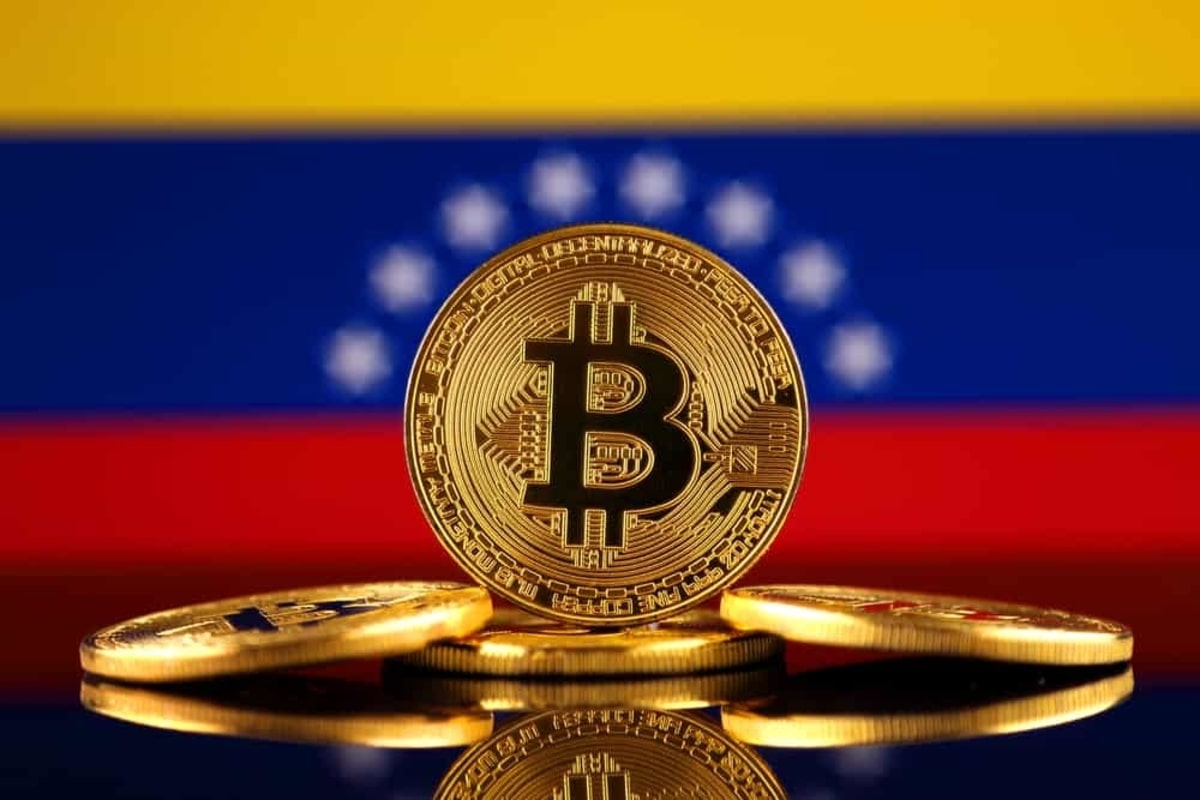Highlights of the Story
- PDVSA now mandates prepayment in USDT for 50% of the value of each oil cargo.
- Venezuela’s adoption of cryptocurrency aims to safeguard against frozen assets in foreign banks.
- The transition to digital currency commenced in 2023, spurred by U.S. sanctions.
In response to escalating U.S. sanctions, Venezuela is ramping up the utilization of digital currencies in oil transactions. PDVSA, the nation’s state oil company, has progressively incorporated cryptocurrency into its payment methods for crude oil and fuel exports. This strategic move is geared towards averting the freezing of export proceeds due to trade restrictions.
Venezuela’s Embrace of Digital Currency
Following the expiration of a general license facilitating broader trade with Venezuela, the U.S. Treasury has set a deadline of May 31 for businesses to realign their dealings with PDVSA. These adjustments coincide with U.S. pressure for electoral reforms in Venezuela that have yet to be implemented.
advertisement
Consequently, PDVSA’s shift to digital currency transactions, specifically USDT (Tether), has been expedited. USDT, a stablecoin pegged to the U.S. dollar, offers a less risky avenue for international transactions.
🚨🇻🇪
VENEZUELA is moving away from the US DOLLAR in favor of CRYPTOCURRENCY for all oil sales
Recommended Articles
The ongoing depreciation of the dollar is being closely monitored, with significant implications pic.twitter.com/SnA85Ms85I
— Alex Barnicoat (@mrbarnicoat) April 22, 2024
This strategic shift commenced in 2023 but has gained momentum following the reimposition of sanctions. By transitioning to a digital framework, PDVSA aims to navigate the complexities of traditional banking systems where assets could be seized or frozen, thereby ensuring a smoother revenue stream from its oil transactions.
Operational Adjustments and Hurdles
PDVSA has had to adapt its operational procedures to accommodate the cryptocurrency transition. For new contracts and spot oil transactions (excluding swaps), PDVSA now requires a 50% prepayment in USDT for each cargo’s value. This policy extends to new clients, who must possess the cryptocurrency in a digital wallet for transactions with the Venezuelan oil entity.
Nevertheless, these initiatives face challenges. Digital currencies like USDT in oil trading remain uncommon in a market still dominated by the dollar. Due to their unconventional nature and regulatory uncertainties, most traders and compliance departments approach cryptocurrency transactions cautiously.
As a result, PDVSA often relies on intermediaries to facilitate these transactions, particularly when engaging with major markets such as China.
Market Response and Future Prospects
While PDVSA navigates these operational shifts, the global oil market is closely monitoring developments. Although the adoption of cryptocurrency in oil trading is limited, Venezuela’s initiative could serve as a precedent for other nations grappling with similar economic sanctions.
However, the success of this initiative hinges on the acceptance of digital currency in international trade, particularly in major oil-consuming nations.
Venezuelan Oil Minister Pedro Tellechea remains optimistic about the country’s trading prospects and its ability to withstand renewed sanctions. He has affirmed Venezuela’s commitment to signing contracts and expanding crude and gas projects during the specified wind-down period mandated by the U.S., with plans to seek individual licenses for oil transactions thereafter.
Read Also: MoonPay and Ledger Introduce Enhanced Crypto Trading Features
✓ Share:

Kelvin, an accomplished writer specializing in crypto and finance, holds a Bachelor’s in Actuarial Science. Renowned for his incisive analysis and insightful content, he possesses a strong command of English and excels in thorough research and prompt delivery.
The content provided may contain the author’s personal opinions and is subject to market conditions. Conduct your own research before investing in cryptocurrencies. The author and the publication do not bear any responsibility for your financial losses.


